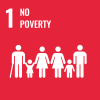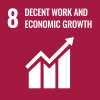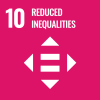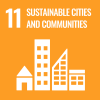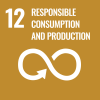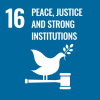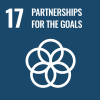Evidence shows that the global Goals worked. They galvanized the entire global community to address the most pressing issues at the beginning of the Millennium, centered in lifting people from extreme poverty and improving the lives of those most disadvantaged. “The MDG experience provides compelling evidence that the international community can be mobilized to confront complex challenges. Governments, civil society and a wide range of international actors coalesced behind the MDGs in a multi-front battle against poverty and disease,” said Secretary-General Ban Ki-moon.
They served as a framework for local, national, regional and global monitoring of development progress resulting in remarkable gains. In many parts of the world, especially in the poorest countries, the MDGs helped accelerate progress to improve the lives of millions. Their importance has been paramount for development.
For fifteen years, the global community and national governments have worked extensively in an effort to end poverty and hunger, eliminate inequalities, improve education, reduce child and maternal mortality, stem the tide of environmental degradation, reduce the rise of diseases and forge global partnerships. Remarkable gains have been made in the reduction of extreme poverty, increasing primary education access in the developing regions, ensuring gender parity in schools, improving health and disease outcomes and access to improved sources of water.
MDGs measured the world
The collection and analysis of data through the MDGs has served as a solid foundation to build decisions at local, national and regional levels, benefiting future development. Measurement of development over more than a decade has highlighted the challenges many countries face in gathering information needed for policy decisions. In order to build a cadre of available data for policy makers for sustainable development, sustainable statistics will be necessary.
“The MDGs have been incredibly important for statistics, launching tremendous efforts to build capacity worldwide for data collection and use in policy making, monitoring and evaluation. This work will be crucial to tackle the challenges yet to come for the monitoring of an even broader development agenda,” said Stefan Schweinfest, Director of UN DESA’s Statistics Division. The final MDG report highlights the importance of data for development and advances in data collection and monitoring due to the MDGs. The report also identifies what needs to be done to meet the data demands for the post-2015 development agenda.
Final assessment and foundation for the post-2015 development agenda
As the MDGs are reaching their deadline, there is reason to celebrate the successes of the global alliance that emerged in 2000 aiming to ensure a better world. While 2015 is vastly different than the start of the Millennium, the development issues enshrined in the MDGs remain integral to ensuring healthy, prosperous lives for many throughout the world. They have not lost their importance even as we grapple with new contexts and challenges in today’s world. This is why they will remain important beyond the expiration date at the end of 2015. The successes and shortfalls in this historic movement will form a solid foundation for the following development agenda.
The post-2015 development agenda will benefit from the lessons learned throughout the MDG experience. A new development period will focus on where we’ve left off after 15 years of worldwide efforts and the new challenges at the forefront of the global agenda. “We have the know-how and the means to address these challenges. These are universal challenges. They demand new heights of multilateral action based on evidence and built on shared values, principles, and priorities for a common destiny,” said Mr. Ban.
Without a doubt, the MDGs have shown that improvements and substantial gains can be made when the global community sets aspirational priorities. The final MDG report highlights the achievements made through this historic effort, culminating in the improvement of the lives of millions.
 Welcome to the United Nations
Welcome to the United Nations
